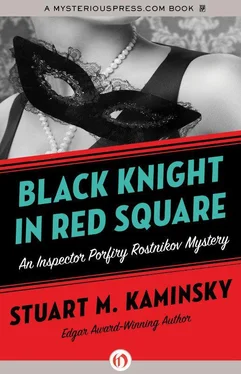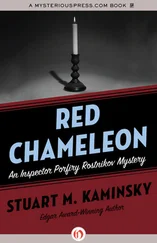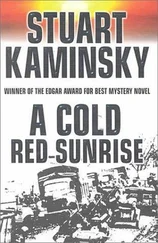“For that I thank you, Comrade Lieutenant,” Iosef said, knowing that Galinarov surely had nothing to do with the granting of such leave and certainly, if given the opportunity, would have fought it. The business of examining the duty roster to see if he could let Iosef go was a childish attempt at reminding Iosef of his authority.
Galinarov reached under the duty roster, removed a folded sheet containing orders for leave, and tapped the sheet against his palm as if still considering whether to grant this favor.
“I’m not sure you deserve this, Rostnikov,” Galinarov said. Iosef looked into the man’s eyes and could now see that he had been drinking heavily. It was a bit early on a Monday evening to look as far into alcohol as the lieutenant did, and Iosef concluded that the order to give his hated underling leave had been most painful.
“I think you are right, Comrade,” Iosef said somberly. “I don’t deserve this. Since you do not want me to have it, I will, regretfully, go back to my duties.” His face a blank, Iosef turned and took a step toward the door.
“Rostnikov,” the lieutenant’s voice shot past him.
“Yes, Lieutenant?” Iosef said, turning around with as innocent a look as he could present.
“I hate you. You know that, do you not?”
Their eyes met and locked.
“Yes, Comrade,” said Iosef, holding out his hand for the folded sheet of paper. Galinarov threw it at him. Iosef caught it neatly and thrust it in his pocket. “Will there be anything else?”
“When you return from your leave, there will be a great deal else, Corporal, a great deal else.” Galinarov drank from his glass without removing his eyes from Iosef. “You are dismissed.”
Iosef turned his back, took three smart strides to the door, opened it, then looked back and said, “Thank you again, Comrade, and I hope you have a good week. May I bring you something from Moscow, a bottle of brandy?”
“You speak when you should be silent and are silent when you should speak,” Galinarov hissed. “I will teach you when to do which.”
“Yes, Comrade Lieutenant,” said Iosef, and he went out into the corridor.
He marched slowly out of the building and across the open field, looking neither right nor left. Galinarov was probably standing at the window of his small office watching. Not until he had entered the barracks and closed the door behind him did he reach into his pocket and remove the leave orders. They were effective immediately. He hurried to his locker, waving the paper at Misha Svedragailov, who lounged in his bunk reading a newspaper.
“Why are you looking so pleased?” asked Misha. “Galinarov fall into the pisser?”
“No!” shouted Iosef. “I’ve got a leave, four days, starting now. If I hurry, I can catch the afternoon train to Moscow.”
“Moscow’s not such a safe place to visit,” answered Misha with envy obvious in his voice. “I was just reading that they had some gas main explosions, one right in Red Square.”
“I’ll risk it,” said Iosef, removing his small travel bag and filling it with underwear and shaving gear.
“You’ll call my father?” asked Misha, going back to his paper.
“I’ll call your father,” agreed Iosef, slamming the locker and turning to leave. “Good-bye.”
The bus to Kiev was ten minutes late, which meant that he had only fourteen minutes to get his ticket and catch the train, but make it he did by running and moving to the front of lines, a privilege of the military.
It wasn’t until he was on the train pulling out of the station that Iosef allowed himself to think. He felt wonder and anxiety about seeing his parents for the first time in a year, a great eagerness to see the familiar buildings of Moscow, and a curiosity about who had tugged at the strings to get him this leave and for what reason.












